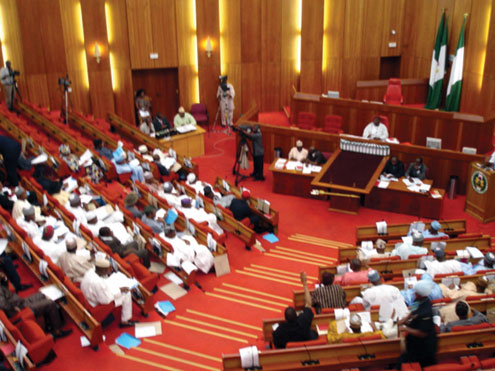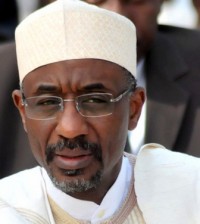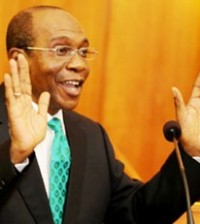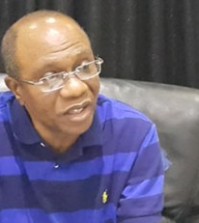CBN May Devalue Naira to 155-156 Per Dollar – Sanusi
Nigeria’s central bank may lower its official target for the naira to 155-156 per dollar and aim to keep it stable around that level over the next year, Governor Lamido Sanusi said.
“We think at this point we might move to 155, 156 as a midpoint,” Sanusi said today at a conference in Abuja, the capital. The bank will make its stance on the currency clear in the next week or two, he said.
The Central Bank of Nigeria has been struggling to keep the naira within a band of 3 percent above or below 150 per dollar as oil prices declined and demand for imports surged. The bank pegs the currency to help keep price pressures under control in Africa’s biggest oil producer. The naira has slumped 4.7 percent against the dollar on the interbank market since July 1, reaching as low as 164.15 on Oct. 6.
“People will know that in the next 12 months the central bank will keep the naira within that band,” Sanusi said. “As long as we are not running out of reserves at an outrageous rate we’ll try to keep that stability.”
Foreign exchange reserves have dropped by $1.5 billion to $33 billion between Feb. 11 and Oct. 27, according to central bank data. Nigerian benchmark Bonny Light crude has fallen 14 percent from an April high.
Sanusi responded to the naira’s decline by raising the benchmark interest rate by 275 basis points to 12 percent on Oct. 10, the highest level since the rate was introduced in 2007. Inflation accelerated to 10.3 percent in September from 9.3 percent in the previous month, the statistics office said on Oct. 14.
The central bank is battling to meet demand for dollars at its twice-weekly auctions. Foreign companies were barred Oct. 14 from purchases at the central bank’s dollar auctions to rein in demand. The bank said on Oct. 21 it may plan “to either buy or sell” dollars to banks “from time to time” in addition to its auctions and weekly forward trading.
Oil accounts for 80 percent of government revenue and 98 percent of exports, yet only makes up 13 percent of the nation’s gross domestic product, compared with 42 percent for agriculture, Sanusi said.
The Nigerian government should diversify sources of revenue “and reduce that risk,” Sanusi said. “Oil plays a disproportionate role in government finances and the financial system.”








